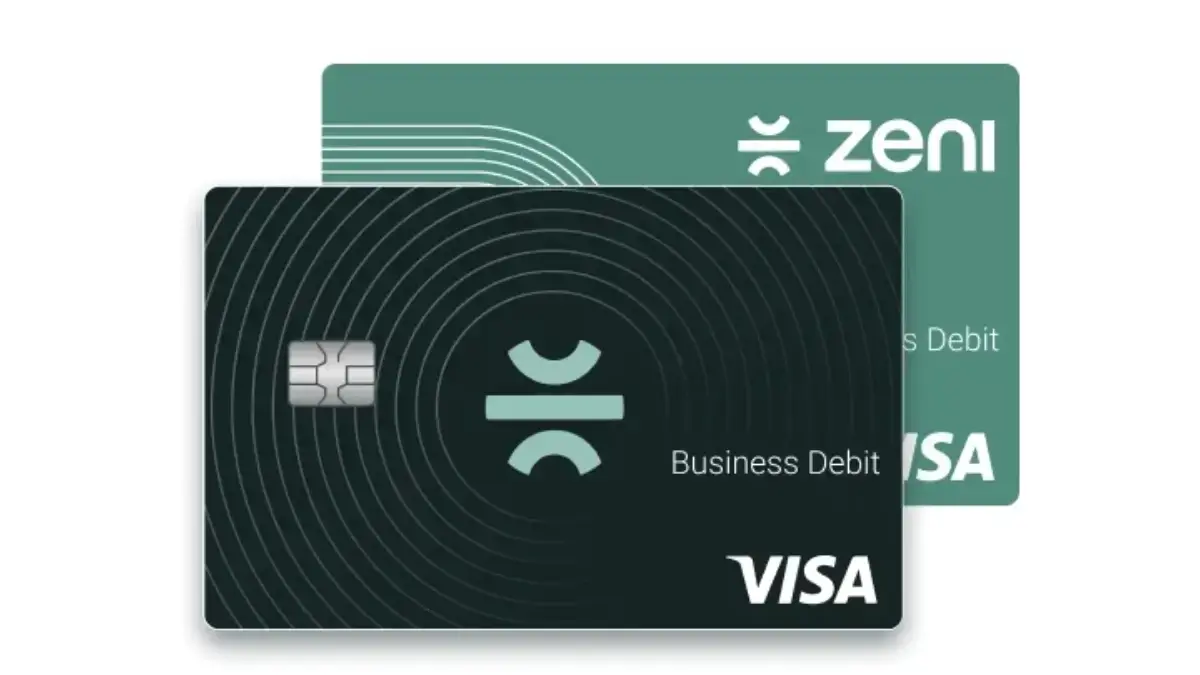
Kudos has partnered with CardRatings and Red Ventures for our coverage of credit card products. Kudos, CardRatings, and Red Ventures may receive a commission from card issuers. Kudos may receive commission from card issuers. Some of the card offers that appear on Kudos are from advertisers and may impact how and where card products appear on the site. Kudos tries to include as many card companies and offers as we are aware of, including offers from issuers that don't pay us, but we may not cover all card companies or all available card offers. You don't have to use our links, but we're grateful when you do!
How to Check Your Business Credit Score: Complete Guide
July 1, 2025


Your business credit score is more than just a number – it's a key indicator of your company's financial health and creditworthiness that can significantly impact your business's future. Unlike personal credit scores, your business credit report is publicly available, meaning potential partners and vendors can access it to evaluate your company's reliability.
Understanding Business Credit Reports and Their Importance
A business credit report serves as a comprehensive overview of your company's credit history and financial responsibility. These reports are essential tools that lenders, insurance underwriters, and potential business partners use to assess your company's creditworthiness and make informed decisions about extending credit or entering into trade credit arrangements.
According to the Small Business Administration (SBA), maintaining a strong business credit score is crucial for:
- Securing better terms on business financing and loans
- Obtaining favorable insurance rates
- Establishing trade credit arrangements with suppliers
- Building credibility with potential business partners
Major Business Credit Bureaus and Their Scoring Models
Dun & Bradstreet (D&B) Credit Scoring
Dun & Bradstreet's Paydex score is one of the most widely recognized business credit scores. This scoring model ranges from 1 to 100, with scores of 80 or higher indicating excellent payment performance. To establish a D&B credit file, you'll need:
- A D-U-N-S Number (unique nine-digit identifier)
- Active trade credit arrangements with suppliers
- Regular reporting of payment history to D&B
Equifax Business Credit Scoring
Equifax's business credit risk score evaluates your company's likelihood of serious delinquency or business failure. Their scoring model considers:
- Payment history with vendors and lenders
- Credit utilization rates
- Business size and industry risk factors
- Length of credit history
Experian Business Credit Scoring
Experian's Intelliscore Plus uses a scale of 1-100 to assess business credit risk:
- 76-100: Low risk
- 51-75: Low to medium risk
- 26-50: Medium risk
- 1-25: High risk
How to Access Your Business Credit Reports
Getting Your D&B Credit Report
- Check if you have a D-U-N-S Number
- Register for a free CreditSignal account for basic monitoring
- Consider D&B's CreditBuilder Plus for comprehensive access
- Use Nav's free service to view your Paydex score
Accessing Equifax Business Reports
- Visit Equifax Business's website
- Choose between one-time reports or ongoing monitoring
- Review your Business Credit Risk Score and Business Failure Score
- Monitor any changes in your business credit health
Checking Experian Business Reports
- Access your business credit report through Experian's portal
- Review your Intelliscore Plus rating
- Monitor payment history and credit utilization
- Track any commercial collection accounts or liens
Factors That Influence Your Business Credit Score
Several key factors impact your business creditworthiness:
- Payment History: Consistently making on-time payments to suppliers and lenders
- Credit Utilization: The amount of available credit you're using
- Business History: Length of time in business and industry risk factors
- Public Records: Any liens, judgments, or bankruptcies
- Company Size: Annual revenue and number of employees
Tips for Improving Your Business Credit Score
- Establish trade credit arrangements with suppliers who report to credit bureaus
- Maintain low credit utilization on business credit cards and lines of credit
- Monitor your business credit reports regularly for errors
- Keep personal and business finances separate
- Make all payments on time or early
Maximizing Your Credit Card Rewards While Building Business Credit
While building your business credit, it's essential to maximize the benefits of your business credit cards. Consider using Kudos, a free AI-powered smart wallet that helps you:
- Get personalized credit card recommendations for each purchase
- Access rewards from over 15,000 stores
- Multiply your rewards up to 5X during Flash Boost events
- Discover new cards that align with your business spending patterns
Expert Takeaway
Monitoring your business credit is crucial for maintaining your company's financial health and borrowing power. Regular monitoring through major business credit bureaus helps you identify areas for improvement and maintain strong business creditworthiness.
If you're looking to get more out of your business credit cards while building your credit, Kudos is the best free shopping app to use when you shop online. They're currently offering $20 back after your first eligible purchase — just sign-up for free with code "GET20" and make a purchase at a Boost merchant.
Business Credit Score FAQ
How often should I check my business credit score?
Monitor your business credit scores at least quarterly, or monthly if you're actively working to improve them or planning to apply for financing.
What's the difference between personal and business credit scores?
Business credit scores are publicly available and use different scoring ranges than personal credit scores. They focus on business-specific factors like trade credit and industry risk.
Can I dispute errors on my business credit report?
Yes, you can dispute inaccuracies directly with each credit bureau. The Fair Credit Reporting Act provides guidelines for correcting business credit report errors.
How long does it take to build business credit?
Building strong business credit typically takes 2-3 years of active credit use and consistent on-time payments.
What's a good FICO SBSS credit score?
The FICO Small Business Scoring Service (SBSS) ranges from 0-300, with most lenders requiring a minimum score of 160 for SBA loans.

Supercharge Your Credit Cards
Experience smarter spending with Kudos and unlock more from your credit cards. Earn $20.00 when you sign up for Kudos with "GET20" and make an eligible Kudos Boost purchase.
Editorial Disclosure: Opinions expressed here are those of Kudos alone, not those of any bank, credit card issuer, hotel, airline, or other entity. This content has not been reviewed, approved or otherwise endorsed by any of the entities included within the post.





























.webp)
.webp)
.webp)
%20(1).webp)
.webp)
.webp)


.webp)